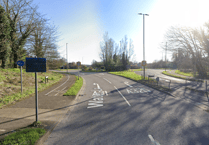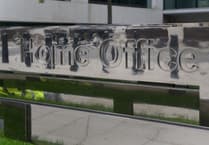At last – Alton Papers no.26 has made its appearance! Published by the Friends of the Curtis Museum and Allen Gallery, it includes a selection of articles on the history of Alton and the local area:
The Gold Family of Chawton lived in the village in the early 1800s and must have been known to Jane Austen.
In March 1823, a letter was printed in the Hampshire Chronicle supporting William and Sarah Gold and not believing the ‘malicious and scandalous reports’ that they had ‘starved the poor’.
William was a bricklayer who did work on Jane Austen’s cottage and Chawton House. Eventually the family moved into Lenten Street in Alton before going to London.
Alton’s Funeral Procession for King Edward VII and the Proclamation describes the events that took place 112 years before the death of his great-granddaughter Queen Elizabeth.
Illustrated with pictures of the time, it is the report from the Alton Gazette which follows the procession to St Lawrence’s Church and then, after a service, to Crown Close. There is a list of all those who took part, ending with the programme for the Proclamation of the new King.
Did Victorian Altonians Move Around? poses a question that is often asked. The author has looked at the occupiers of dwellings along the main streets in Alton through the various censuses of Queen Victoria’s reign. Different areas of Alton are considered and conclusions, which may surprise readers, drawn for each.
3 and 5 High Street, Alton looks at the history of these buildings from the mid-1740s (when they were erected) through almost 250 years. They were home to a variety of people including tailors, shoemakers, Alton’s first commercial photographer and the Stoodley family – watch and clock makers in the town for more than 100 years.
The Donkey Ladies were well known in Alton for many years. Marjorie and Dorothy came to the area in about 1915 and their mother was a ‘wardrobe dealer’ in Normandy Street. Marjorie married Ernest Glasspool.
He became disabled so she transformed a Victorian bath chair into a carriage that could be pulled by Jenny the donkey.
After Ernest’s death, the sisters lived together and became known as ‘The Donkey Ladies’ as they were often seen with their beloved donkeys.
Alton Papers no.26 costs £3 and can be obtained from the Curtis Museum, Alton (together with other books on local history) or from Jane Hurst, 82 The Butts, Alton, GU34 1RD, plus £1 p&p.




